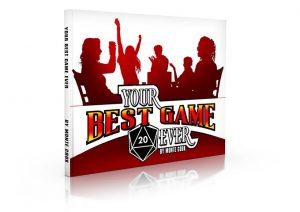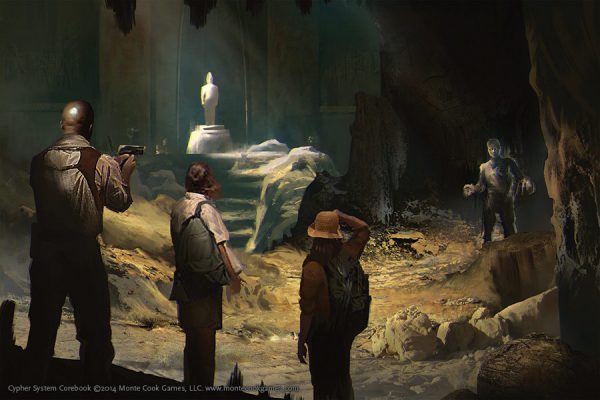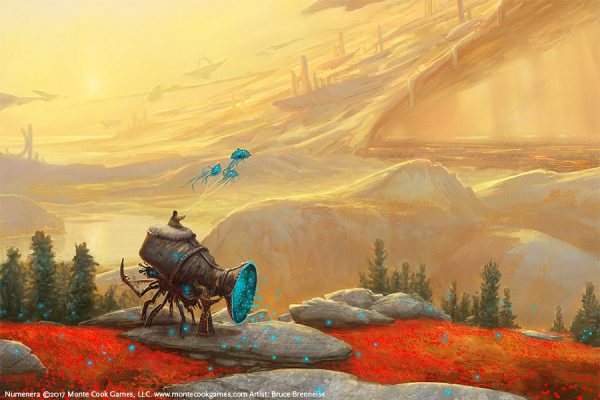Advice about the game group comprises a whole chapter of Your Best Game Ever, with topics like group size, advice on scheduling, session length, who should GM, handling player departures and absences, and more.
Today we’re bringing you an excerpt from the section on the brand-new player.

Giving a New Player the Best Possible First Impression
First off, even if you’re in the middle of a long-term campaign, consider starting with a one-shot game in which everyone (including the new player, obviously) starts with new characters. Starting out is already intimidating, but the responsibility of joining in a story that a group of strangers has been building for a considerable amount of time adds a lot more on their shoulders. It’s easier to start out if it feels a little like everyone else is starting out too.
In fact, if you’re going to have a special one-shot game to introduce the new person, consider bringing in two or even three newbies. Again, it’s easier when you’re not the only person who doesn’t know what’s going on. Plus, while you’d never tell them this, the whole experience could be seen as a sort of tryout, like actors auditioning for a role. If one of the new players is obnoxious or just doesn’t like the game, but the other seems great, later you can privately invite the one who fits in to join your regular game.
Whether it’s a campaign or a one-shot, try really hard not to overburden the new player with a lot of rules. They only need to know the basics. You can tell them how to make a skill check to climb a rope if and when it comes up. Focus on the rules that pertain specifically to their character. Tell them briefly what their stats mean and what special abilities they have. Feel free to answer a lot of their questions about other things with “We can cover that later.”
Rather than the rules, hook them into the story, because story is something we all can latch onto. It’s built right into being a person. Give them a goal, and tell them how their character might possibly achieve that goal. If the PCs are exploring an abandoned military complex to find evidence of strange experiments that might have occurred there and the newbie’s character is a tough private eye, explain that they have a sharp eye when it comes to searching, and if trouble gets stirred up, they know how to handle themselves in a fight.

Don’t expect too much from the new player (but don’t condescend to them, either). It might take a bit for them to get a handle on the most basic RPG premises, and they might need or want to see the other, experienced players take some actions first. You’ll almost certainly see that the new player sort of agrees with whatever is presented to them at first. This is because they have no context for making the decisions you’re asking them to make. Don’t let them get frustrated if you can help it. If you ask questions like “What do you do?” or “What spell do you want to cast?” and they answer, “I don’t know,” that’s okay. It’s to be expected. Give them two options with very short, concise explanations. If they still can’t make a decision, suggest one, but explain why it’s a good choice. “You probably want to cast a shield spell to protect yourself from harm so you can be safe.”
Resist the urge to have the newbie play an NPC or someone’s old PC that isn’t being used anymore. It’s hard enough to learn the rules and take in all the concepts of an RPG without also being told “Oh, Alethia the Cleric wouldn’t do that.” If you want to enthrall someone with the concept of roleplaying, use the “you can do anything” approach, which means the new player makes all the decisions for their character.
Lastly, remember that it’s not solely the GM’s job to teach a new player the rules. It’s the job of the whole group. But don’t everyone talk at once, and let me reiterate a statement from just above—don’t overwhelm the newbie. I have seen more people turned off from RPGs by feeling like they’re in over their head or by utter confusion than anything else.
